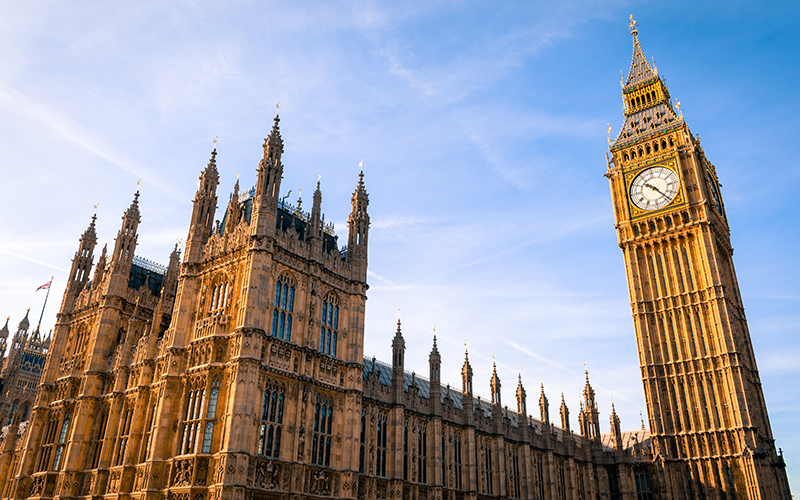All-party parliamentary group accuses HMRC of breaching Civil Service Code

As April’s implementation of IR35 Off-Payroll Working Rules gets closer, Her Majesty’s Revenue & Customs (HMRC) has found itself back at the centre of a controversy this week.
The new contention is over HMRC’s engagement of contractors who were enrolled on Disguised Remuneration schemes.
In a letter to HMRC CEO and permanent secretary Jim Harra, the All-Party Parliamentary Loan Charge Group (APPG) has claimed Freedom of Information enquiries revealed that HMRC misled a Parliamentary committee by withholding information about “an important matter the committee had asked about, for the clear reason that the sharing of this information was ‘sensitive’ and embarrassing to HMRC”.
The APPG is calling for an investigation into what they said is “likely to be a breach of the Civil Service Code”.
In the letter, the APPG claimed that HMRC had previously “evaded questions” numerous times about whether of its contractors had ever made use of DR schemes. The alleged incidents of evasion included an occasion when quizzed by the House of Lords Economic Affairs Finance Bill Sub-Committee in November 2018.
The letter goes on to say that withholding the information from a Parliamentary Select Committee “in this way and for this reason” is “likely to be a breach of the Civil Service Code”.
“HMRC have finally acknowledged that they did use contractors using DR schemes, having previously evaded questions on the subject… It is clear that HMRC have only done so as a result of being compelled to disclose the information through FOI requests,” the letter said.
An HMRC spokesperson responded: “HMRC senior leaders did not mislead members of the House of Lords and we have never endorsed or participated in Disguised Remuneration tax avoidance schemes. It is possible for contractors to use disguised remuneration without the participation or knowledge of their engager. Whenever it is or has been discovered that a contractor, providing services to HMRC or RCDTS, is currently using a disguised remuneration scheme, we have acted and will act promptly to terminate the relevant engagements.
“We continue to warn people about the risks of using tax avoidance schemes and our advice remains the same – if something looks too good to be true, it almost certainly is.”
The APPG letter continues: “HMRC claims it was clear schemes were unacceptable whilst using contractors using these same schemes… Yet the reality is, far from ‘being clear’ that these schemes were unacceptable and ‘did not work’, HMRC itself was using contractors who were using such schemes right up to 2020… It is also now established that when the information was discovered, HMRC did not publish this information, nor share it with the House of Lords Economic Affairs Committee, despite the Committee’s letters to HMRC regarding this matter.”
One FOI extract says: “In November 2018, HMRC was aware of five individuals who had a history of using DR schemes and providing services to HMRC. HMRC records did not show these individuals to have utilised a scheme while services were provided to the department… In October 2020, a further analysis of these individuals using ‘updated compliance’ information was provided. The further analysis showed that in two cases, the usage of a DR scheme was concurrent with the provision of services to HMRC.”
Commenting, Crawford Temple, CEO of assessor of payment intermediary compliance Professional Passport, said: “It is not a new issue, and has been hotly debated from many years as a game of ‘cat and mouse’ has been played out between HMRC and the promoters of these corrupt schemes. But it is astonishing to learn that HMRC has been engaging contractors who are working through such schemes. There is no excuse.”
In other developments related to IR35 over the last week:
- HMRC has said customers will not have to pay penalties for inaccuracies in the first 12 months relating to the off-payroll working rules, “unless there’s evidence of deliberate non-compliance”. In guidance issued this week, HMRC has committed to supporting customers “who are trying to do the right thing” and comply with the rules but will “challenge deliberately non-compliant customers”.
Commenting, Dave Chaplin of IR35 Shield said: “A tax penalty is not the same as being able to issue fines. HMRC cannot issue fines if they don’t like someone’s process; they can only issue penalties on top of the amount of underpaid tax, and only in circumstances where they can prove the firm has been careless in law or deliberately not paid tax they knowingly knew was due. These are high bars to reach, and for firms that are making a stern attempt to get this right, penalties won’t even come into play.” - Consultancy firm Deloitte and insurance giant Zurich have been reported to be committed to blanket bans on using contractors working through limited companies as the Off-Payroll Working Rules for the private sector come into effect this year, with other organisations expected to follow suit.
• Comment below on this story. Or let us know what you think by emailing us at [email protected] or tweet us to tell us your thoughts or share this story with a friend.




